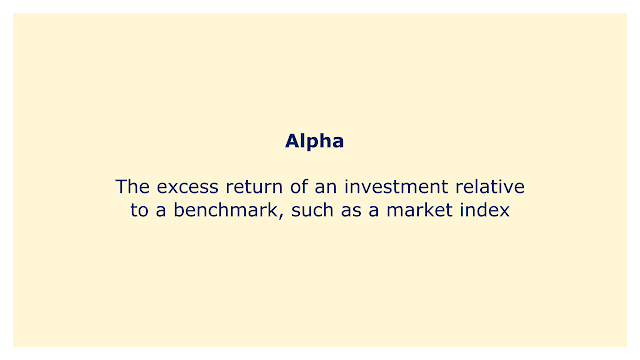 |
| Image: Moneybestpal.com |
The term "alpha" is frequently used in finance to refer to the excess return of an investment over a benchmark, such as a market index. When measuring an investment's performance against a benchmark, alpha takes into consideration the risk that was incurred to produce that return. In other words, it serves as a gauge for the value an investment manager adds in comparison to the benchmark.
In active investment management, where the objective is to beat a benchmark through the selection of individual assets, alpha is frequently used. A positive alpha in this context denotes that, after accounting for the risk incurred to get such returns, the investment manager has produced returns above those of the benchmark. A negative alpha, on the other hand, shows that the investment manager underperformed the benchmark.
The return on investment is subtracted from the return on a benchmark to calculate alpha. The benchmark return is used as a stand-in for the market return, or the return that may have been obtained by investing in a market index like the S&P 500. The calculation of alpha is typically expressed as follows:
Alpha = Investment Return - Benchmark Return
Individual security, a fund, or a portfolio's performance can all be evaluated using alpha. It gives an indication of the active return produced by an investment manager, which is the return that exceeds the return of the benchmark. A positive alpha in the context of portfolio management means that the selection of specific assets by the portfolio manager has contributed value.
